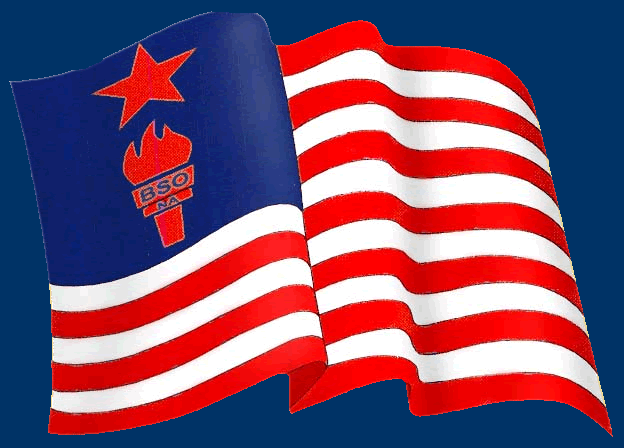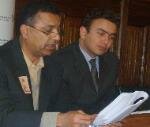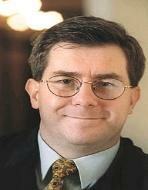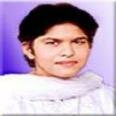| Baloch Society Of North America (BSO_NA) Baloch Society Of North America (BSO_NA) is Non-Profit Organization, working to unite and Organize all Baloch in North America, to expose the Occupation of our land (Balochistan) and exploitations of our resources by Pakistani and Iranian Governments, and to bring their Human Rights Violations in Balochistan into the world’s Notice. |
Accusing Pakistan of supporting Taliban, he said we are the only secular people in the region and international presence in the region
could see Pakistan is supporting religious groups and fanatics in the region. Now all the reputable international organisations such
as Amnesty International, Human Rights Commission of Pakistan, International Crises Group, and Human Rights Watch are saying
what we have been saying all along. He said solution of Balochistan lies in self-determination, which according to the principles of the
United Nations, is our basic right. He said if the international community cannot support us at least they should stop supporting rogue
Pakistani army, which is continually violating the all-international Human Rights laws. He also thanked all the speakers and the
participants of seminar.
Pakistani federal minister Tariq Azim said repeating the same old typical lies of the Pakistani establishment that Baloch Sardars are
the hurdle in the way of development and India was behind Baloch insurgency. He said 27 points of parliamentary committee
recommendations have been discussed but they are yet to be implemented.
Soon after his speech, the Pakistani minister was hackled by the questions and comments of the audience. Smita purushottam,
Minister (political) at Indian High commission, disputed the claims of Tariq Azim saying that Indian diplomatic presence was in
Afghanistan because of security concerns. “We have nothing to do with interfering in the affairs of any other country. We are involved in
the development projects in Afghanistan. The pakistani minister’s claims have no shade of reality”.
When the Pakistani minister was asked Question regarding the military operation in Baluchistan, disappearance of political activists
and killing of civilians in Baluchistan. Some members of audience raise the slogans of shame, shame while he tried to speak. About
missing brother of Senator Sana Baloch, and other thousands Baloch missing people he refused to comment and did not answer the
questions. Baloch activists in the hall were very furious at minister for not responding to their questions.
The seminar was finally addressed by the chair, Mr. Philip Fisk, who said that it was a very good seminar and live discussion on an
issue that have serious regional implications and The Foreign Policy centre would continue to organise debate on this and similar
issues.
Related Links:
could see Pakistan is supporting religious groups and fanatics in the region. Now all the reputable international organisations such
as Amnesty International, Human Rights Commission of Pakistan, International Crises Group, and Human Rights Watch are saying
what we have been saying all along. He said solution of Balochistan lies in self-determination, which according to the principles of the
United Nations, is our basic right. He said if the international community cannot support us at least they should stop supporting rogue
Pakistani army, which is continually violating the all-international Human Rights laws. He also thanked all the speakers and the
participants of seminar.
Pakistani federal minister Tariq Azim said repeating the same old typical lies of the Pakistani establishment that Baloch Sardars are
the hurdle in the way of development and India was behind Baloch insurgency. He said 27 points of parliamentary committee
recommendations have been discussed but they are yet to be implemented.
Soon after his speech, the Pakistani minister was hackled by the questions and comments of the audience. Smita purushottam,
Minister (political) at Indian High commission, disputed the claims of Tariq Azim saying that Indian diplomatic presence was in
Afghanistan because of security concerns. “We have nothing to do with interfering in the affairs of any other country. We are involved in
the development projects in Afghanistan. The pakistani minister’s claims have no shade of reality”.
When the Pakistani minister was asked Question regarding the military operation in Baluchistan, disappearance of political activists
and killing of civilians in Baluchistan. Some members of audience raise the slogans of shame, shame while he tried to speak. About
missing brother of Senator Sana Baloch, and other thousands Baloch missing people he refused to comment and did not answer the
questions. Baloch activists in the hall were very furious at minister for not responding to their questions.
The seminar was finally addressed by the chair, Mr. Philip Fisk, who said that it was a very good seminar and live discussion on an
issue that have serious regional implications and The Foreign Policy centre would continue to organise debate on this and similar
issues.
Related Links:
Speakers include:
Ms Asma Jehangir, UN Special Rapporteur on Freedom of Religion or Belief, Commission on Human Rights (tbc)
Mr Jaromir Kohlicek MEP, Vice-Chair, SAARC Delegation
Senator Tariq Azeem, Minister of State for Information and Broadcasting, Government of Pakistan
Mr Selig Harrison, Centre for International Policy, Washington DC
Mr Javed Mengal, Former Senator, Balochistan National Party
Philip Fiske, Foreign Policy Centre (Chair)
Why does Balochistan matter? Balochistan crosses the states of Pakistan, Afghanistan and Iran and in some ways is the 'Kurdistan of
Central Asia'. Balochistan is a crucial element to Britain's relations with Pakistan and the Pakistani community in the UK. Quetta, the
capital of Balochistan in Pakistan is a known hideout for Al-Qaeda and Taleban fighters.
The Balochi people believe they have been oppressed in many ways by the Pakistani government. Feudal systems of government,
corruption and incompetence have lead to socio-economic backwardness and extreme poverty. NGOs have raised concerns of
political incarceration and torture of Balochi political activists such as Rasheed Azam.
In addition, Balochistan's gas resources have received much attention from both Iran and China, keen to get a foothold in the province.
These facts make a compelling case that Balochistan should be on the radar of the international community.
If you wish to attend, please RSVP to Alex Bigham by emailing or calling 020 7729 7566.
Ms Asma Jehangir, UN Special Rapporteur on Freedom of Religion or Belief, Commission on Human Rights (tbc)
Mr Jaromir Kohlicek MEP, Vice-Chair, SAARC Delegation
Senator Tariq Azeem, Minister of State for Information and Broadcasting, Government of Pakistan
Mr Selig Harrison, Centre for International Policy, Washington DC
Mr Javed Mengal, Former Senator, Balochistan National Party
Philip Fiske, Foreign Policy Centre (Chair)
Why does Balochistan matter? Balochistan crosses the states of Pakistan, Afghanistan and Iran and in some ways is the 'Kurdistan of
Central Asia'. Balochistan is a crucial element to Britain's relations with Pakistan and the Pakistani community in the UK. Quetta, the
capital of Balochistan in Pakistan is a known hideout for Al-Qaeda and Taleban fighters.
The Balochi people believe they have been oppressed in many ways by the Pakistani government. Feudal systems of government,
corruption and incompetence have lead to socio-economic backwardness and extreme poverty. NGOs have raised concerns of
political incarceration and torture of Balochi political activists such as Rasheed Azam.
In addition, Balochistan's gas resources have received much attention from both Iran and China, keen to get a foothold in the province.
These facts make a compelling case that Balochistan should be on the radar of the international community.
If you wish to attend, please RSVP to Alex Bigham by emailing or calling 020 7729 7566.
| "Why Balochistan Matters" |
Date: Monday 4 December 2006, 11.30am to 1.30pm
Venue: Committee Room 12,(PLEASE NOTE ROOM CHANGE) House of Commons
This event on Balochistan, a volatile region of Pakistan is part of a series of events the Foreign Policy Centre is
organising in Parliament on conflicts that receive little attention in the media or elsewhere.
Venue: Committee Room 12,(PLEASE NOTE ROOM CHANGE) House of Commons
This event on Balochistan, a volatile region of Pakistan is part of a series of events the Foreign Policy Centre is
organising in Parliament on conflicts that receive little attention in the media or elsewhere.

"Why Balochistan Matters" LONDON: A seminar titled ‘Why Balochistan Matters – Insurgency and the politics of Military rule in Pakistan’ was organised by The Foreign Policy Centre with the collaboration of (BRM) Balochistan Rights Movement on 04 December 2006 in the British Houses of Parliament. Mr. Philip Fisk of The Foreign Policy Centre chaired the seminar. |
A number of very distinguished speakers deliberated on various aspects of the Baluchistan conflict and the ongoing military operation by
Pakistan military. The speakers were included Mr Selig Harrison, Mehran Baluch, Dr Naseer Dasht, Dr Lakhu Luhana, Ayesha Siddiqa,
MEP Ryszard Czarnecki, MEP Marek Czarnecki, MEP Paula Casaca and federal Minister for information &Broadcasting Senator Tariq
Azim addressed the seminar. However, the representative of (BPP) Balochistan People party Mr Raheem Baloch, representative of
(GBNC) Greater Balochistan Nation Congress Mr Ghulam Hussain Baloch, Leader of Raj-e-Zrombish Mr Ismail Amiri and Abdullah
Seyahoi Baloch, Abdul Samad Baloch of Balochistan Action committee and Dr Abdul and Dr Hussain bhur were also present at the
seminar.
Pakistan military. The speakers were included Mr Selig Harrison, Mehran Baluch, Dr Naseer Dasht, Dr Lakhu Luhana, Ayesha Siddiqa,
MEP Ryszard Czarnecki, MEP Marek Czarnecki, MEP Paula Casaca and federal Minister for information &Broadcasting Senator Tariq
Azim addressed the seminar. However, the representative of (BPP) Balochistan People party Mr Raheem Baloch, representative of
(GBNC) Greater Balochistan Nation Congress Mr Ghulam Hussain Baloch, Leader of Raj-e-Zrombish Mr Ismail Amiri and Abdullah
Seyahoi Baloch, Abdul Samad Baloch of Balochistan Action committee and Dr Abdul and Dr Hussain bhur were also present at the
seminar.
Dr Naseer Dashti in his speech presents the historical background of Baloch conflict. He retreated that
Balochistan was forcefully annexed without genuine consent and will of Baloch people. He said in the wake
of British withdrawal form south Asia, Baloch declared their independence on August 13, 1947 and
Immediately elections were held for a bicameral parliament, beginning a new democratic political system in
Baloch land.
To Read Dr. Naseer Dashti's full speech, please click here >> Dr.Naseer's Speech
Balochistan was forcefully annexed without genuine consent and will of Baloch people. He said in the wake
of British withdrawal form south Asia, Baloch declared their independence on August 13, 1947 and
Immediately elections were held for a bicameral parliament, beginning a new democratic political system in
Baloch land.
To Read Dr. Naseer Dashti's full speech, please click here >> Dr.Naseer's Speech
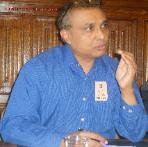
Dr. Lakhu Luhana, secretary general of World Sindhi Congress said that root causes of the problem are the
domination of Punjabi army who want to subjugate Baluch and Sindhi people ruthlessly in order to loot all
their resources and colonise their lands. He said Pakistan’s Punjabi army has been given a freehand by the
Punjabi establishment to kill, capture and torture any Baloch and Sindhi activist who raise his or her voice
against the Pakistani occupation, atrocities of Pakistani military and Human Rights violation in Sindh and
Balochistan. He mentioned that Pakistan’s military establishment is not only killing Baluch and Sindhi
people but is a serious threat to regional and global security.
domination of Punjabi army who want to subjugate Baluch and Sindhi people ruthlessly in order to loot all
their resources and colonise their lands. He said Pakistan’s Punjabi army has been given a freehand by the
Punjabi establishment to kill, capture and torture any Baloch and Sindhi activist who raise his or her voice
against the Pakistani occupation, atrocities of Pakistani military and Human Rights violation in Sindh and
Balochistan. He mentioned that Pakistan’s military establishment is not only killing Baluch and Sindhi
people but is a serious threat to regional and global security.
Polish MEP Mr Ryszard Czarnecki Pakistan army is responsible for the assassination of Baloch
Nationalist leader Nawab Akbar Khan Bugti. He said the brutal killing of Nawab Bugti by Pakistani army is
gross violation of Human Rights but the death of Nawab Bugti will bring more strength to Baloch
Liberation Movement. He said Baloch people regard Nawab Bugti as their National hero and a Martyr of
Baloch National struggle. He said international community and EU parliament must take action against
such brutal killings of National leaders of any Nation.
Nationalist leader Nawab Akbar Khan Bugti. He said the brutal killing of Nawab Bugti by Pakistani army is
gross violation of Human Rights but the death of Nawab Bugti will bring more strength to Baloch
Liberation Movement. He said Baloch people regard Nawab Bugti as their National hero and a Martyr of
Baloch National struggle. He said international community and EU parliament must take action against
such brutal killings of National leaders of any Nation.
Another Polish MEP Mr Marek Czarnecki said that Pakistani army is killing innocent Baloch civilian including
children, women and elderly people. He strongly condemned the on going military operation in Balochistan.
He said the European parliament is watching very closely, what Pakistani military regime is doing in
Balochistan. “We have received reports about missing of thousands people, inhuman tortures and extra
judicial killing by the pakistan law enforcement agencies in Balochistan", He said international community
have to act immediately to stop the genocide of Baloch Nation.
children, women and elderly people. He strongly condemned the on going military operation in Balochistan.
He said the European parliament is watching very closely, what Pakistani military regime is doing in
Balochistan. “We have received reports about missing of thousands people, inhuman tortures and extra
judicial killing by the pakistan law enforcement agencies in Balochistan", He said international community
have to act immediately to stop the genocide of Baloch Nation.
Speaking on the occasion Mr. Selig Harrison of Centre for International Policy, Washington DC, who is
recognised internationally as an authority on Afghanistan and Baluchistan, in his deliberation, said that the
separation of Baluchistan would have serious implications for the existence of Pakistan. He said that for any
negotiated solution the first pre-condition is that the ongoing genocide of Baluch people under the hands of
Pakistani army should stop immediately.
recognised internationally as an authority on Afghanistan and Baluchistan, in his deliberation, said that the
separation of Baluchistan would have serious implications for the existence of Pakistan. He said that for any
negotiated solution the first pre-condition is that the ongoing genocide of Baluch people under the hands of
Pakistani army should stop immediately.
He said that the root cause of the conflict is the Islamabad’s control on all the affairs of Baluchistan. He said that for Baluch nationalists
Pakistan is synonymous to ‘Punjab’. He provided the details of last major insurgency in Baluchistan, in 70’s, in which 80000 Pakistani
troops and 35000 Baluch fighters were involved. He said that Pakistan committed heinous crimes against Baluch people in that war.
Pakistani forces used cobra gunship to bombard the civilian enclaves killing 15000 civilians, including women and children, to derive
Baluch fighters out of their mountain hideouts. He said the tactics of Pakistani army have resulted in deep-rooted hatred among Baluch
people against Pakistan army. He said Pakistan is not declaring how many of its forces are involved in the current operation in
Baluchistan however the USA intelligence services are suggesting that 6 army brigades are carrying out the operation. He said that
many credible sources including HRCP have clearly mentioned the indiscriminate bombing of Baluch civilians. He said no local or
international journalist is allowed to go in the areas under military operation; therefore, the situation is not clear. However, unlike 1971
Baluch fighters are better equipped. He said that the Pakistan army has tried to divide Baluch people and leadership but without much
success. He said that currently there are no signs of support of India, though Pakistan has made repeated claims, however India might
get attracted if Baluch and Sindhi nationalist forces join hands. He said the possibilities of a conflict resolution would only arise if
general Musharaf goes, military leaves Baluchistan, a democratic government is in place and the talks are made with the genuine
leadership of Baluch people.
Pakistan is synonymous to ‘Punjab’. He provided the details of last major insurgency in Baluchistan, in 70’s, in which 80000 Pakistani
troops and 35000 Baluch fighters were involved. He said that Pakistan committed heinous crimes against Baluch people in that war.
Pakistani forces used cobra gunship to bombard the civilian enclaves killing 15000 civilians, including women and children, to derive
Baluch fighters out of their mountain hideouts. He said the tactics of Pakistani army have resulted in deep-rooted hatred among Baluch
people against Pakistan army. He said Pakistan is not declaring how many of its forces are involved in the current operation in
Baluchistan however the USA intelligence services are suggesting that 6 army brigades are carrying out the operation. He said that
many credible sources including HRCP have clearly mentioned the indiscriminate bombing of Baluch civilians. He said no local or
international journalist is allowed to go in the areas under military operation; therefore, the situation is not clear. However, unlike 1971
Baluch fighters are better equipped. He said that the Pakistan army has tried to divide Baluch people and leadership but without much
success. He said that currently there are no signs of support of India, though Pakistan has made repeated claims, however India might
get attracted if Baluch and Sindhi nationalist forces join hands. He said the possibilities of a conflict resolution would only arise if
general Musharaf goes, military leaves Baluchistan, a democratic government is in place and the talks are made with the genuine
leadership of Baluch people.
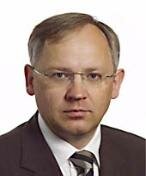
MEP Paulo Casaca said that it was the duty of International community to take notice violation being perpetrated
by the state of Pakistan. He said instead of resolving the Balochistan issue, Pakistan has bombed Baloch people,
their home and belongs. He said he has been reading reports that hundreds of civilians have been killed by
indiscriminate air strikes on their villages.
by the state of Pakistan. He said instead of resolving the Balochistan issue, Pakistan has bombed Baloch people,
their home and belongs. He said he has been reading reports that hundreds of civilians have been killed by
indiscriminate air strikes on their villages.
Dr Ayesha Siddiqa said that Pakistani army was trying to divide Baloch leaders by pitting one Baloch tribe against
another. For this purpose, they brought Masuri and Kalper against Bugti and interestingly all of them are wanted
criminals. They have been armed and supplied money by the state of Pakistan.She said the media Pakistan was
not able to cover incidents in Baluchistan. In August 2006 within the days of Nawab Bugti, murder media found it
very difficult to talk about Baluchistan. She said I admit that government has launched billions of rupees
development works but then the Baluchistan government is facing a budget deficit of Rs17 billion.The
government is following a top down economic
another. For this purpose, they brought Masuri and Kalper against Bugti and interestingly all of them are wanted
criminals. They have been armed and supplied money by the state of Pakistan.She said the media Pakistan was
not able to cover incidents in Baluchistan. In August 2006 within the days of Nawab Bugti, murder media found it
very difficult to talk about Baluchistan. She said I admit that government has launched billions of rupees
development works but then the Baluchistan government is facing a budget deficit of Rs17 billion.The
government is following a top down economic
development, which is not going to work in Baluchistan. They did the same thing in past for instance they set up the Hub industrial area
where around 90 percent workers employees are from Karachi. No machinery or other thing is in Balochistan. In so-called mega,
projects out of 600 only 100 are Baloch.
where around 90 percent workers employees are from Karachi. No machinery or other thing is in Balochistan. In so-called mega,
projects out of 600 only 100 are Baloch.
Mehran Baloch in his speech said that Nawab Bugti is still alive for us the Baloch people because no
one including the family member has been shown his body it is a cruel and criminal act on part of
Pakistani army. He said the government buried a locked wooden box no one has seen if there was a
body inside the box or not. Talking about thousands disappeared Baloch political activists in
Balochistan Mehran Baloch said that their only fault is they raise their voice against Pakistani occupying
force, now for that they are being severely tortured in the army dungeons in kulli camps. He said the
military and ISI is kidnapping Baloch poets, students and writers who have nothing to do with politics.
He said the army operation is going on against Baloch people since 1948 but in recent years the level of
severity has changed and we also know that the government is planning the worst ever attacks against
the people of Balochistan in the coming months. About talks with the government, Mr Mehran said the
Baloch did try all options but the government did not responded. “They don’t believe in talks”. He said
last time Sana Baloch spoke about the issue of Balochistan then Pakistani agencies kidnapped two of
his brothers.
one including the family member has been shown his body it is a cruel and criminal act on part of
Pakistani army. He said the government buried a locked wooden box no one has seen if there was a
body inside the box or not. Talking about thousands disappeared Baloch political activists in
Balochistan Mehran Baloch said that their only fault is they raise their voice against Pakistani occupying
force, now for that they are being severely tortured in the army dungeons in kulli camps. He said the
military and ISI is kidnapping Baloch poets, students and writers who have nothing to do with politics.
He said the army operation is going on against Baloch people since 1948 but in recent years the level of
severity has changed and we also know that the government is planning the worst ever attacks against
the people of Balochistan in the coming months. About talks with the government, Mr Mehran said the
Baloch did try all options but the government did not responded. “They don’t believe in talks”. He said
last time Sana Baloch spoke about the issue of Balochistan then Pakistani agencies kidnapped two of
his brothers.
